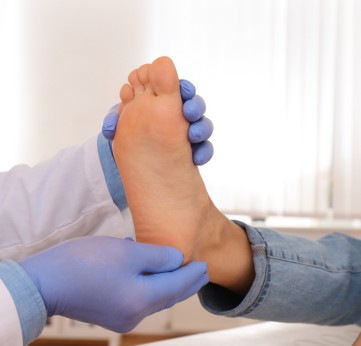Diabetic foot ulcers are a serious complication of diabetes, affecting millions of people worldwide. These painful sores can lead to infections, hospitalizations, and even amputations if not treated properly. Fortunately, clinical trials in Florida—particularly in Miami and Hialeah—are paving the way for innovative treatments that could transform the lives of those living with diabetic foot ulcers.
In this blog post, we’ll explore what diabetic foot ulcers are, how clinical trials are addressing this condition, and the benefits of participating in these studies. If you or a loved one is struggling with diabetic foot ulcers, this guide will provide valuable insights into how you can access cutting-edge treatments while contributing to medical research.
What Are Diabetic Foot Ulcers?
Diabetic foot ulcers are open sores or wounds that commonly occur on the feet of people with diabetes. They are often caused by poor circulation, nerve damage (neuropathy), and high blood sugar levels, which can slow down the healing process. Without proper treatment, these ulcers can lead to severe complications, including infections and amputations.
Why Are Clinical Trials Important for Diabetic Foot Ulcers?
Clinical trials play a critical role in developing new treatments for diabetic foot ulcers. These studies test the safety and effectiveness of innovative therapies, such as:
- Advanced wound care products
- Stem cell therapies
- Growth factor treatments
- Antibacterial dressings
- Hyperbaric oxygen therapy
By participating in a clinical trial, you can help researchers discover better ways to treat and prevent diabetic foot ulcers, ultimately improving the quality of life for patients worldwide.
What to Expect in a Diabetic Foot Ulcer Clinical Trial
1. Screening Process
Before joining a clinical trial, you’ll undergo a thorough screening process to determine if you’re eligible. This may include:
- A review of your medical history
- Physical examinations
- Blood tests to check your glucose levels
- Imaging tests to assess the ulcer
2. Informed Consent
If you qualify, the research team will explain the study’s purpose, procedures, potential risks, and benefits. You’ll sign an informed consent form, indicating that you understand and agree to participate.
3. Study Procedures
During the trial, you’ll receive the investigational treatment and be closely monitored by a team of healthcare professionals. This may involve:
- Regular wound care and dressing changes
- Blood tests and imaging to track healing progress
- Follow-up visits to assess your overall health
4. Duration and Commitment
The length of a diabetic foot ulcer clinical trial varies depending on the study. Some trials last a few weeks, while others may continue for several months. The research team will provide details about the time commitment before you enroll.
5. Follow-Up Care
After the trial ends, you may need to attend follow-up visits to ensure the ulcer has healed properly and to monitor for any long-term effects of the treatment.
Benefits of Participating in a Diabetic Foot Ulcer Clinical Trial
For Consumers:
- Access to Innovative Treatments: Participants often gain access to cutting-edge therapies that are not yet available to the public.
- Expert Medical Care: You’ll receive high-quality care from a team of specialists who are focused on your healing and well-being.
- Compensation: Many clinical trials offer compensation for your time, travel, and participation.
- Contribution to Medical Research: Your involvement helps researchers develop better treatments for diabetic foot ulcers, benefiting future patients.
- Personal Satisfaction: Knowing you’re making a difference in the fight against diabetes complications can be incredibly rewarding.
For the Community:
- Advancing Healthcare: Clinical trials help bring new treatments to market, improving healthcare outcomes for everyone.
- Economic Impact: Research studies often bring jobs and funding to local areas like Miami and Hialeah.
- Increased Awareness: Participation raises awareness about diabetic foot ulcers and the importance of early intervention.
Why Miami and Hialeah Are Ideal for Diabetic Foot Ulcer Clinical Trials
Miami and Hialeah are home to diverse populations, making them ideal locations for clinical trials. Researchers can study how treatments work across different ethnicities, ages, and health conditions. Additionally, the area’s top-tier medical facilities and research centers ensure that participants receive the best possible care.
How to Find Diabetic Foot Ulcer Clinical Trials in Florida
If you’re interested in joining a diabetic foot ulcer clinical trial in Miami, Hialeah, or other parts of Florida, here are some resources to get started:
- ClinicalTrials.gov: A comprehensive database of ongoing studies worldwide.
- Local Hospitals and Universities: Many institutions in Florida conduct clinical trials for diabetic foot ulcers.
- Research Organizations: Look for reputable organizations like DinamoResearch that specialize in diabetes-related studies.
Common Questions About Diabetic Foot Ulcer Clinical Trials
1. Are Clinical Trials Safe?
Yes, clinical trials are closely regulated to ensure participant safety. Each study is reviewed by an Institutional Review Board (IRB) to protect your rights and well-being.
2. Do I Have to Pay to Participate?
No, participants do not pay to join a clinical trial. In fact, many studies offer compensation for your time and travel.
3. Can I Leave a Clinical Trial Early?
Yes, you can withdraw from a clinical trial at any time, for any reason. Your participation is entirely voluntary.
4. Will I Receive a Placebo?
Some trials use placebos (inactive treatments) as part of the study design. However, you’ll be informed if this is a possibility during the informed consent process.
Final Thoughts
Diabetic foot ulcers are a challenging condition, but clinical trials offer hope for better treatments and improved outcomes. If you’re in Florida—especially in Miami or Hialeah—you’re in a prime location to access these groundbreaking studies.
By participating in a diabetic foot ulcer clinical trial, you’re not just helping yourself; you’re contributing to medical research that could benefit millions of people worldwide. Ready to take the next step? Explore clinical trial opportunities near you today!

